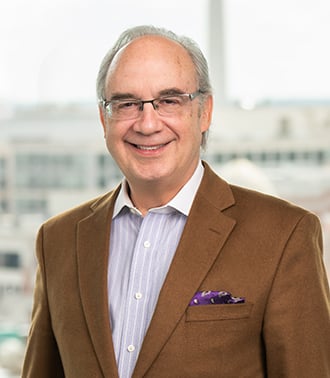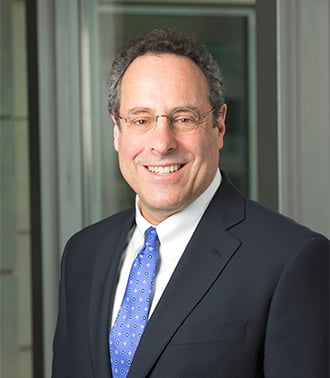No Turning Back: The Obama Administration Moves to Solidify the Shift in US-Cuba Policy With Further Opportunities for US Persons to Do Business in Cuba
In announcing a new Presidential Policy Directive on Cuba (the Cuba PPD) on October 14, 2016 that is intended to take "another major step forward in our efforts to normalize relations with Cuba," the Obama Administration made its intentions unmistakably clear: the further policy changes are designed to "make our opening to Cuba irreversible."1 Of course, without Congress, there is no change to the embargo that the President can unilaterally make permanent. But the Administration appears to believe that by opening enough doors to two-way commerce and engagement between the United States and Cuba, Americans and American business interests will become too intertwined with Cuba to make reversing the normalization politically untenable.
Thus, among the many priorities articulated with respect to this normalization and expansion of US-Cuba relations, the Administration instructed that the Departments of State, Treasury, and Commerce all continue to publicize the new and increasing opportunities available to US persons to do business involving Cuba, and to closely read and consider new requests to do business—and to issue general and specific licenses to do so—in light of the Administration's forward-leaning approach.2 To that end, on October 17, 2016, the Office of Foreign Assets Control (OFAC) at the Department of Treasury and the Bureau of Industry and Security (BIS) at the Department of Commerce made additional revisions to the regulations implementing the Cuban embargo,3 which present new opportunities for US companies and individuals to engage with, travel to, and do business with Cuba. These changes include the following:
Travelers are subject to fewer restrictions, including on the importation of Cuban goods, alcohol, and tobacco. Authorized US travelers to Cuba were previously subject to very low thresholds on what goods could be taken back from Cuba in their luggage, and even lower thresholds on Cuban alcohol and tobacco. The revisions to the CACR now permit authorized US travelers to return from Cuba with Cuban goods, alcohol, and tobacco to the same extent that they can return from any global destination with such goods. The goods must be for personal use only and must be carried as accompanied baggage (they should not be shipped out of Cuba separately). In addition, US persons travelling to Cuba for the purpose of attending or organizing professional meetings or conferences in Cuba are now permitted to do so even if the purpose of such meeting or conference is "for the promotion of tourism in Cuba[.]" However, US persons who travel to Cuba still must meet one of the twelve general license categories for travel, or they must obtain a specific license, and tourism itself remains prohibited.
More exports to Cuba are authorized. BIS has revised the Support for the Cuban People (SCP) license exception to permit the export of items from the US if they are sold directly to individuals in Cuba for their use or that of their immediate family. BIS has made clear that this is designed to permit direct online retail sales to Cubans, setting up a new era of cross-border e-commerce between the US and Cuba. Revisions to the CACR also make a number of seemingly small, but helpful revisions to the regulations governing exports to Cuba. First, provided that an exporter obtains a license from BIS, reexportation of US-origin goods from a third-country is no longer limited to "100% US-origin items." This was a requirement that previously caused much confusion on the scope of such permissible reexports. Second, OFAC has revised the CACR to conform the scope of the licensing provision related to the export of "agricultural commodities" by eliminating the confusing term "agricultural items." Third, OFAC has amended the CACR to permit the import of goods previously exported to Cuba for purposes of servicing or repair of such items in the United States.
Negotiations can start now. Under a new general license, US persons are also free to negotiate and even enter into contracts involving transactions prohibited by the CACR provided that any such contracts are made contingent on obtaining a license or authorization to engage in the subject transactions from OFAC and/or the appropriate US agency (depending on the circumstances). So, US companies can now engage in sales and marketing outreach to Cubans, travel to Cuba to seek business opportunities, and even enter into bona fide sales negotiations, provided that the US persons make any resulting agreement contingent on obtaining the necessary authorization to actually engage in the resulting business.
US persons can provide new services to Cubans without a license. The revisions to the CACR now permit US persons to: (1) service and repair goods previously exported to Cuba; (2) provide civil aviation safety-related services to Cuba and Cuban nationals; and (3) to provide services related to developing, repairing, maintaining, and enhancing Cuban infrastructure, which is defined to include a wide range of means, systems, and assets used to provide the Cuban people with goods and services, including: the public transportation, water management, waste management, non-nuclear electricity generation, and electricity distribution sectors, as well as hospitals, public housing, and primary and secondary schools.
New opportunities for cross border research and collaboration. The amendments to the CACR now also permit US persons to provide grants, scholarships, and awards to Cubans related to scientific research and religious activities. In addition, US persons are now generally authorized to engage in joint medical research projects with Cuban nationals, including both non-commercial and commercial medical research. Finally, the obtaining of approval from the Food and Drug Administration (FDA) of Cuban-origin pharmaceuticals, and the importation of such pharmaceuticals into the US (including discovery and development, pre-clinical research, clinical research, regulatory review, regulatory approval and licensing, regulatory post-market activities, and the importation into the United States of Cuban-origin pharmaceuticals) is now permitted.
The above changes are significant, but they are not an exhaustive list of the changes to the Cuban embargo that have gone into effect. Importantly, however, the default policy with respect to Cuba, despite all of these new authorizations, is that in the absence of express authority to engage in activity involving Cuba, such activity is still prohibited for US persons. Thus, any US person seeking to engage in activities involving Cuba or Cuban nationals must carefully ensure that the authorizations OFAC and BIS provided in the regulations (or in specific licenses that are obtained) are not exceeded. At the end of the day, while the Administration has continued to poke holes (sometimes very large ones) into the embargo, only Congress has the authority to finally and definitively open lines of trade, travel, and engagement between the US and Cuba.
-
Statement by the President on the Presidential Policy Directive on Cuba.
-
Presidential Policy Directive -- United States-Cuba Normalization.
-
The Cuban Assets Control Regulations (CACR), 31 C.F.R. Part 515, and the Export Administration Regulations (EAR), 15 C.F.R. Parts 730-774.







